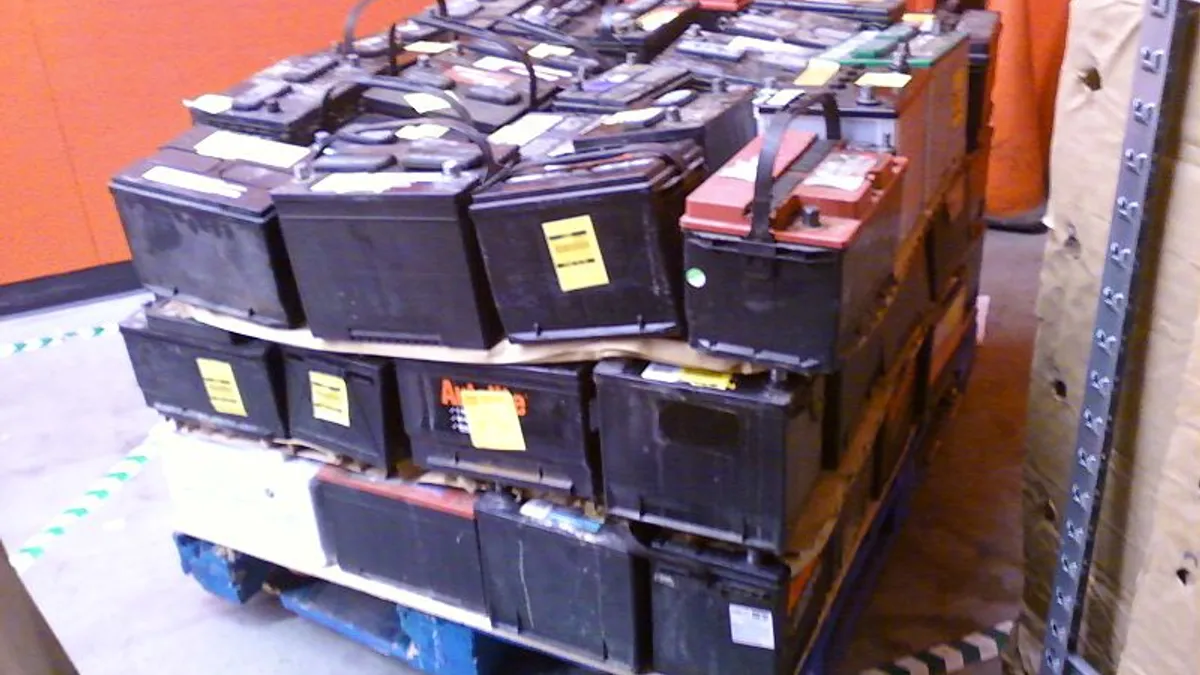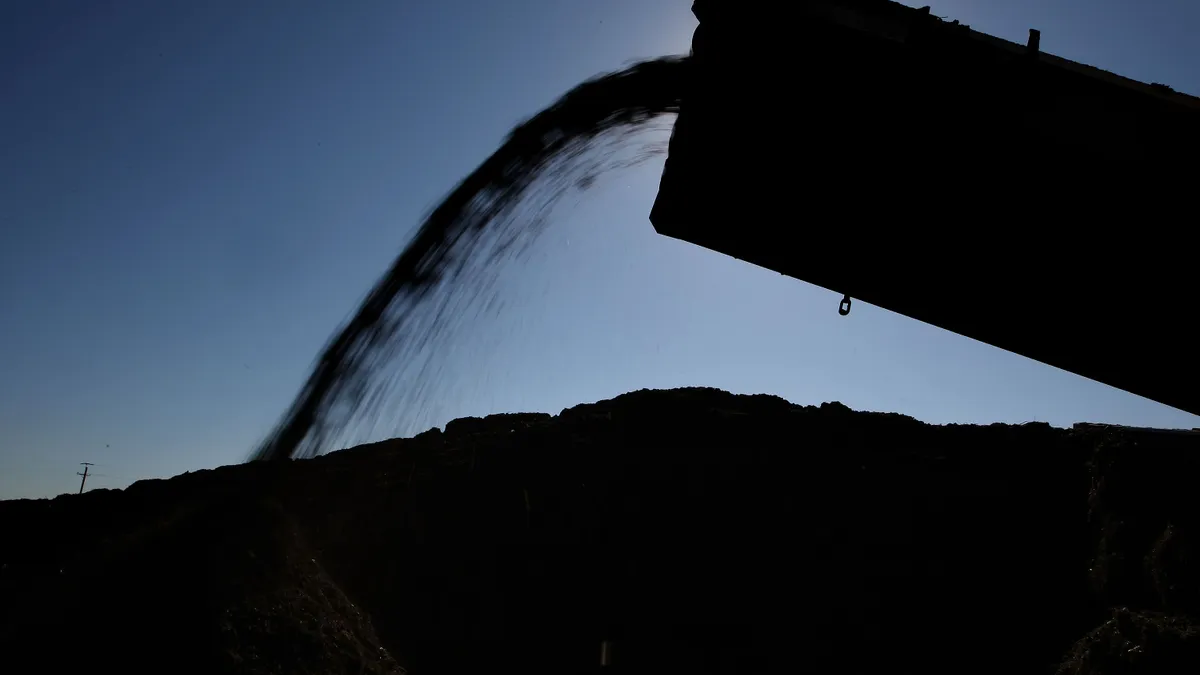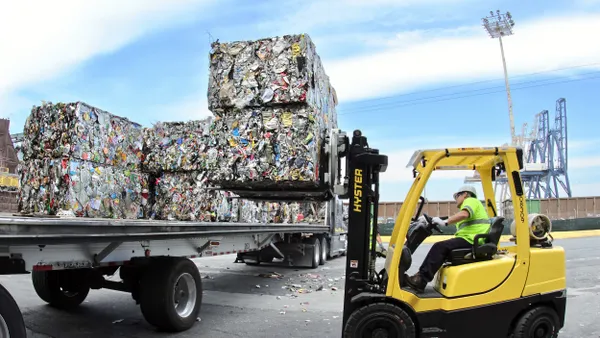Dive Brief:
- California tech company Aqua Metals says it has designed a lead battery recycling method that employs a water-based solvent, which it plans to demonstrate at its new plant in Storey County, NV — a "practically emission-free" plant, according to the company’s Chief Commercial Officer Steven Cotton. But, according to the site's application for an Air Quality Operation Permit filed last year, it will allegedly generate substantial air pollution — over a ton of lead per year.
- Aqua Metals submitted a revised application indicating much lower emissions of just one pound per year.
- The Nevada Bureau of Air Pollution Control had already stated it would approve the permit at the excessive lead level, and there has been no indication whether a second review will be needed for the revised application.
Dive Insight:
The solid waste industry continues to work to stay on top of various battery recycling operations to protect landfills, water, and soil from contamination of such hazardous materials as lead, cadmium, and arsenic, and to ultimately avoid multimillion dollar cleanup projects.
In California, Call2Recycle became the first stewardship program to ensure proper collection and recycling of rechargeable batteries to provide this very protection. Since that time, several local councils and authorities have partnered with battery manufacturers to develop similar initiatives.
It appears that Aqua Metals will move forward with its plans, but Perry Gottesfeld, executive director of the nonprofit OK International — which speaks out against industrial pollutants — is keeping an eye on the company. Gottesfeld questioned the timing of Aqua Metals' filed revised application, which was one day before the close of public comment over its specifications.
Cotton said the paperwork timeframe was about bureaucracy.
"We never intended to emit anywhere near what the initial permit states, but you know you have deadlines and you have to get the permit in. So now it's revised," he told KUNR Public Radio.











